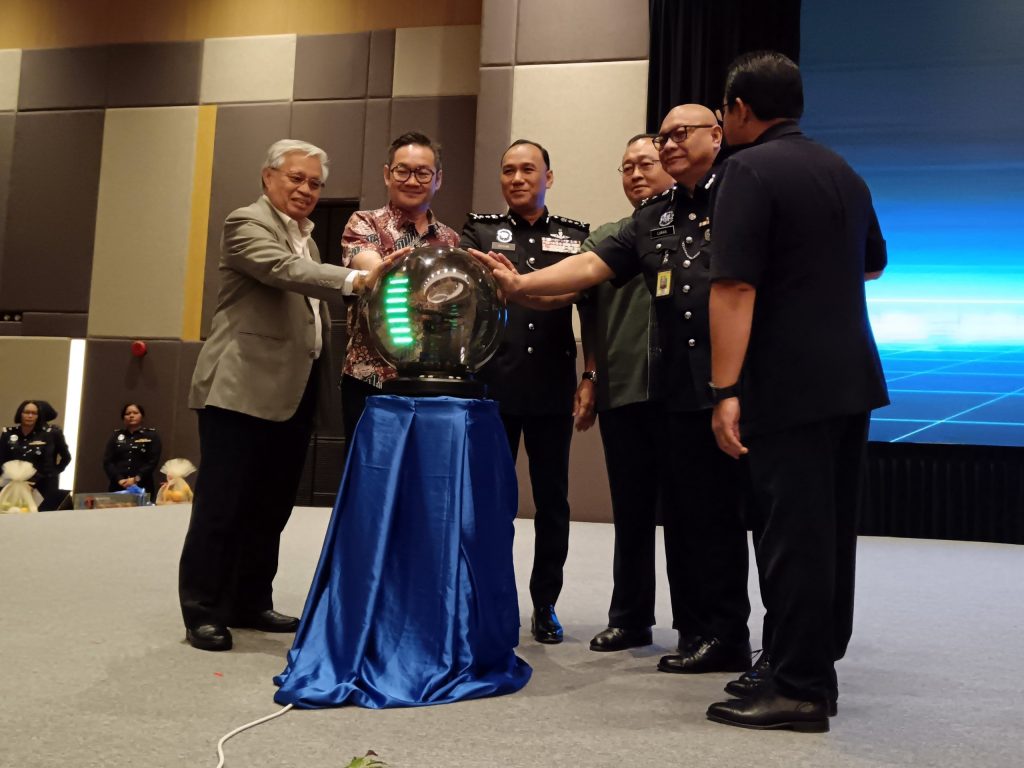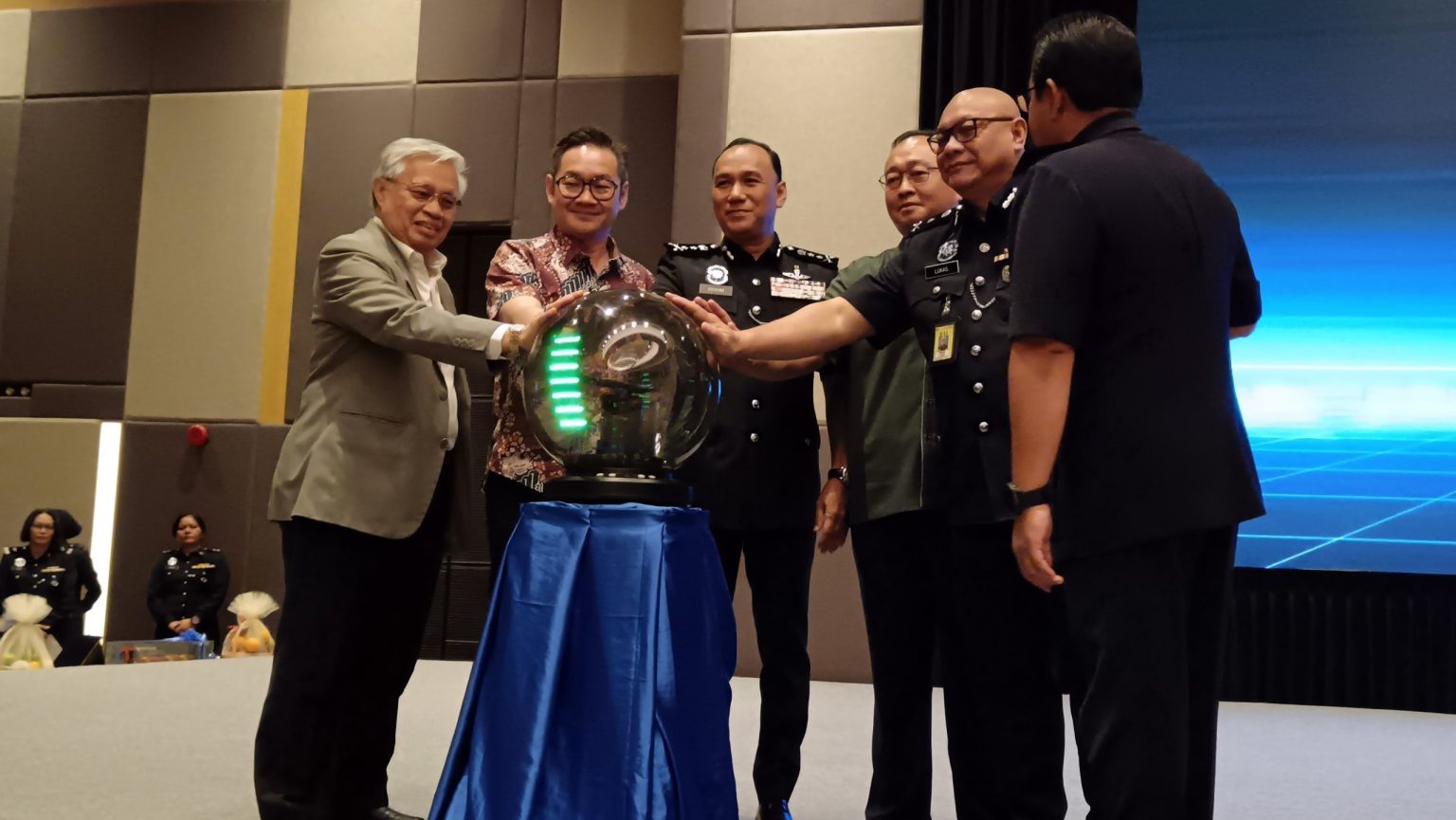Advertisements
SIBU (Oct 15): In the pursuit of becoming a developed and high-income state by 2030, Sarawak must prioritise public safety as a cornerstone of economic and social growth, says Deputy Minister of Public Health, Housing, and Local Government, Datuk Michael Tiang. He emphasised that investor and community confidence is directly tied to the state’s security measures, which in turn are fundamental to achieving the ambitious vision of ‘Sarawak Maju’.

Speaking at a townhall session titled ‘Bicara Jenayah: Kesiapsiagaan Mendepani Isu Jenayah’, held at the University of Technology Sarawak (UTS) yesterday, Tiang highlighted the importance of maintaining a secure environment to support Sarawak’s economic aspirations. He explained that without a stable and secure setting, the confidence of investors and community members could waver, potentially hindering Sarawak’s progress.
“If we take security matters lightly, the confidence of the investors and the community will fade, and this will defeat our goals,” Tiang asserted. “Public safety is the foundation of prosperity and economic growth, and it is essential to our mission of becoming a high-income state.”
Advertisements
The townhall session, organised by the Sibu District Police Headquarters in collaboration with UTS, drew a diverse audience, including government agency heads, community leaders, village security and development committees, and students. The session aimed to discuss pressing crime issues and emphasised the importance of readiness in crime prevention.
Strong Partnerships for Effective Crime Prevention
Datuk Michael Tiang further underscored the need for collaboration between the community and local authorities, particularly the police, to ensure ongoing public safety. He praised the efforts of the police in fostering community engagement through awareness programmes designed to educate the public on crime prevention.
“I believe that community-based prevention strategies are the best way to lower crime rates,” he said. “A good relationship between the community and the police is crucial in fostering a peaceful and safe environment for all.”
The townhall event featured a panel of experts, each presenting insights from their respective fields within the Sarawak Police Force. Panellists included Sarawak Criminal Investigation Department (CID) chief SAC Wong Ing Fung, Sarawak Narcotics Crime Investigation Department (NCID) chief ACP Mustafa Kamal Gani Abdullah, Sarawak Commercial Crime Investigation Department (CCID) chief Supt Maria Rasit, and DSP Alif Charles Belon from the National Strategic Office (NSO), Council for Anti-Trafficking in Persons and Anti-Smuggling of Migrants (MAPO). Their presence underscored the seriousness of Sarawak’s commitment to tackling crime from multiple fronts.
Sarawak Deputy Police Commissioner Datuk Ibrahim Darus, who officiated the event, noted that public safety remains a top priority for law enforcement agencies across the state. He highlighted various initiatives aimed at strengthening the security infrastructure to ensure Sarawak remains an attractive destination for investors and a safe home for its residents.
Strengthening Public Confidence for Economic Growth
Tiang stressed that public safety not only protects citizens but also plays a critical role in fostering investor confidence. “When communities feel safe, they are more likely to invest in the local economy, support businesses, and take part in development initiatives,” he explained. He added that public safety directly impacts Sarawak’s reputation and attractiveness as a business hub, especially in the light of the state’s high-income aspirations.
The event also provided a platform for UTS students to engage with law enforcement leaders, underscoring the value of youth involvement in community-based crime prevention strategies. UTS Vice-Chancellor Prof Datuk Dr Khairuddin Abdul Hamid echoed Tiang’s sentiments, stating that such programmes are integral to shaping a safer and more resilient Sarawak.
Community Involvement: A Key Element for Sarawak’s Future
Tiang highlighted that local communities play an indispensable role in crime prevention and urged residents to remain vigilant and proactive. He encouraged them to actively collaborate with the police and participate in programmes aimed at enhancing community safety.
“Public involvement in safety initiatives is vital to building trust and ensuring that the needs of the community are met,” Tiang said. “A united community can make a significant difference in crime prevention and contribute to Sarawak’s success as a high-income region.”
With the goal of achieving developed status by 2030, Sarawak’s government and law enforcement agencies are committed to creating an environment where public safety is prioritised. The event reinforced the belief that collaboration and awareness are essential in building a secure Sarawak that is poised for sustained economic growth.
Also present at the event were Sarawak Crime Prevention and Community Safety Department chief SAC Lukas Aket, Sibu District Officer Wee Teck Min, and Sibu police chief ACP Zulkipli Suhaili, who collectively expressed their commitment to improving public safety for the benefit of all Sarawakians.
As Sarawak moves forward on its journey towards achieving high-income status, public safety will remain an essential component of its strategy. The state government’s commitment to security will continue to drive investor confidence and contribute to Sarawak’s reputation as a stable and prosperous region.


